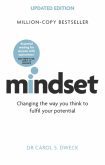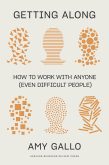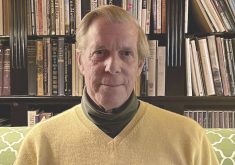Think Like a Monk: Train Your Mind for Peace and Purpose Everyday
By Jay Shetty (Simon & Schuster)
You might be surprised to learn how many lessons for farmers can be found in the wisdom of monks. After all, a monk’s life and a farmer’s life could hardly be more different. One is all about de-stressing; the other is frequently only about stress.
Jay Shetty, author of Think Like a Monk: Train Your Mind for Peace and Purpose Everyday, knows a little something about real-world stress and how monkish teachings can translate to everyday life. He’s a former monk himself, having first lived a “regular” life, then trained to be a monk for three years in India, and finally transitioned back to the “modern” world.
Read Also

The big squeeze: How to be fair to siblings during farm succession
Managing sibling business relationships on family farms.
How can thinking like a monk help you in a modern (and decidedly non-monk) farming world?
This book is chockablock with practices and tools. We don’t have space enough to cover them all, but these two farm-relevant aspects make a good start.
Solutions for stress
Stress probably seems par for the course to most farm business owners, but it can become very dangerous, mentally, physically and in relation to business outcomes. Try some of Shetty’s suggestions:
- Back slowly away: “Letting go gives us freedom, and freedom is the only condition for happiness.”
- Filter and reflect: “Once you filter out the noise of opinions, expectations, and obligations you will see the world through different eyes … When we fill up our lives and leave ourselves no room to reflect, those distractions become our values by default.”
- Spot, stop, swap: Shetty was taught by monks to spot a feeling or issue; stop to understand what it is; and swap in a new way of processing.
Shetty cautions, “Studies also show that long-term stress, like that generated by complaining, actually shrinks your hippocampus — that’s the region of your brain that affects reasoning and memory. Cortisol, the same stress hormone that takes a toll on the hippocampus, also impairs your immune system.”
With a busy planting season maybe already in motion, remember to shift to a monk mindset for less stress, better situational assessments and responses, and ultimately, a better business.
The many faces of fear
Fear can have inordinate control over our lives. The Buddha said, “Fear does not prevent death. It prevents life.” If we spend too much time fearful about what will or will not happen, we miss what is happening — the fun, the opportunities, the connections.
Fear evolved as a protective measure to help humans survive potentially dangerous situations, but sometimes if we let it, it can easily infiltrate our everyday thoughts and actions. “My root fear influence(d) my decision-making,” writes Shetty as he looks back at how he made decisions before his monk training.
Would he fail in school and subsequently disappoint his parents? What would his friends think if he became a monk? Now, when he reaches a decision point, he’s alert for those questions. “In this way, I can use my awareness of my fear as a tool to help me make decisions that are truly in line with my values and purpose.”
For some farmers, the fear of looking like they’re not “keeping up” by having the most modern facilities or the newest machinery could lead to some unsound monetary business decisions. If your purpose is to grow your business in the most efficient and strategic way possible, focus on your values, your end goal and manageable debt levels, not on others’ perception of you.
Sometimes, we put our fears under a magnifying glass for all the wrong reasons. Rather than take this close-up opportunity to assess and respond to our fears, we “deny or abandon the situation,” says Shetty. He comes to an important dividing point. He says the cause of fear is attachment (“I am angry”, “I am sad”) and the cure for fear is detachment (“I feel angry,” “I feel sad”).
“A monk mind practices detachment,” he writes. “Clinging to the temporary things gives them power over us, and they become sources of pain and fear … Our teachers made a distinction between useful and hurtful fears. They told us that a useful fear alerts us to a situation we can change … We (can) transform hurtful fears into useful fears by focusing on what we can control.”
And yet, fear is not all bad. The stress response generated by our bodies — increased adrenaline levels or heart rate — “can help us identify and address patterns of thinking and behaviour that don’t serve us,” says Shetty. “Studies show that being able to successfully deal with intermittent stressors … to approach them head-on, like those trees standing up in the wind, contributes to better health, along with greater feelings of accomplishment and well-being.”
Ultimately, this allows us to gain a new perspective, to realize that we are capable of finding ways to handle bad things when they happen.
















